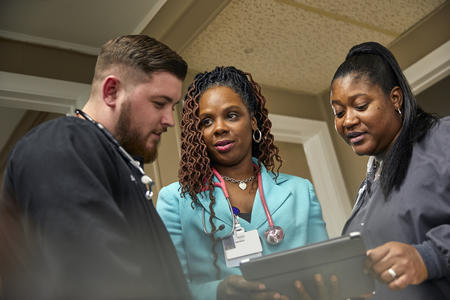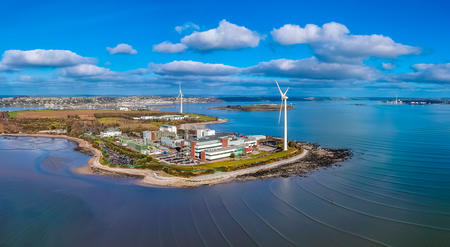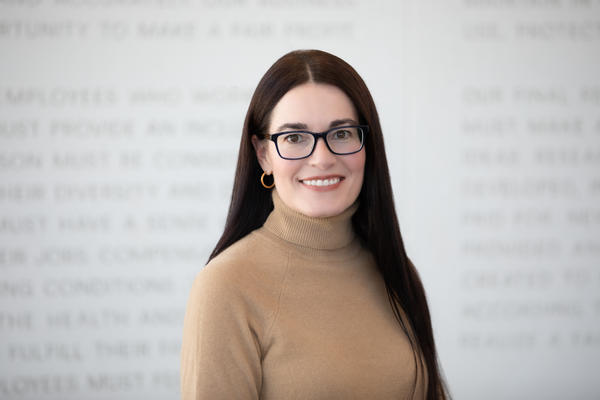As the world’s largest and most diversified healthcare company, Johnson & Johnson’s long-standing commitment to climate action is grounded in the knowledge that healthy people need a healthy planet. For the sixth year in a row J&J will be a sponsor of Climate Week NYC, once again bringing the intersection of climate change and human health to this important global stage.
Ahead of Climate Week NYC 2023, we connected with Paulette Frank, J&J’s Chief Sustainability Officer, to hear more about the company’s commitment to environmental health equity and the community-based ways they are supporting climate resilient healthcare.
How is your commitment to climate action having a real-world impact?
No matter where in the world you are, you’re likely experiencing the impacts of climate change in some way. 2023 is on track to be the hottest year on record, and extreme heat is affecting human health in many ways - including increased stress on cardiovascular systems and the risk of heatstroke - with the impacts being felt disproportionately by the most vulnerable among us.
At J&J, we realized we could have a meaningful impact on advancing environmental health equity by leveraging our long-standing commitment and decades of experience supporting healthcare workers and community-based care. For example, for three years we have supported the Climate and Health Equity Fellowship, a program run by the Medical Society Consortium on Climate and Health, where selected physicians immerse in topics ranging from policy engagement to health equity education to media relations. The program has supported dozens of Fellows who are making tangible impacts in their communities and beyond – you can read more through the MSCCH site.

What are you doing to collaborate with others to maximize the impact of your efforts to fight climate change?
Climate action is the ultimate team effort, requiring diverse perspectives and skill sets to get the job done – whether that’s internal cross-functional teams, industry peers or representatives of the wider healthcare sector.
When it comes to environmental health equity, for example, we have an ongoing collaboration with Americares and Harvard Chan C-CHANGE to bolster climate resilience in community healthcare clinics across the United States. Through this multi-year project, we will build specific plans to improve operational resilience in clinics, as well as health resilience among the healthcare workforce and the people they serve. Our goal is to help communities maintain access to quality healthcare when climate impacts occur.
This year at Climate Week I’ll be joined on stage by leaders from Americares and Harvard, and we’ll share more about what’s ahead for this work. Tune in to our session on Tuesday, September 19th to learn more.
What about your own operations. Given the need to bring down emissions to at least 50% by 2030, what actions are you taking now to cut your own carbon footprint?
Johnson & Johnson’s commitment to climate action dates back decades, and this includes our sustained work to reduce our operational emissions. In recent years we have worked hard to accelerate our transition to 100% renewable electricity for our global operations. I’m proud that earlier this year we reached the milestone of 100% renewable electricity for our operations in Europe through a combination of on-site and off-site wind and solar, covering our company’s facilities across 12 countries. We’re on track to get to 100% in the U.S., Canada and Brazil next, with multiple deals in place that should be operational soon. We are also investing in low carbon energy sources at several of our sites. For example, at our Beerse, Belgium site, which includes pharmaceutical manufacturing, R&D and distribution, we are using geothermal energy to help heat and cool buildings.

What role does innovation play in your efforts to address climate change?
At J&J, we create and manufacture products that people around the world rely on everyday—everything from life changing medicines to medical technologies, contact lenses and surgical equipment. Changes to regulated products and packaging can take years, so near term opportunities to innovate often focus on outer packaging and end-of-life solutions.
For example, we replaced the plastic trays used in most of our self-injectable devices with a fiber-based material that had not been used in pharmaceutical packaging before. It was a significant breakthrough since the new trays can be disposed of through regular cardboard recycling waste streams in most countries.
In our MedTech business, we are helping to address medical waste by working with hospitals across Europe to recycle medical instruments designed for single use. The program allows hospitals to recycle select metal and plastic components from single use surgical instruments while digitally capturing and communicating the environmental impact of salvaging these materials. What started as a single pilot is now active in many hospitals across 8 countries.
Johnson & Johnson is a Stream Partner at Climate Week NYC. Register virtually and join Johnson & Johnson at Climate Week NYC September 17-24.
